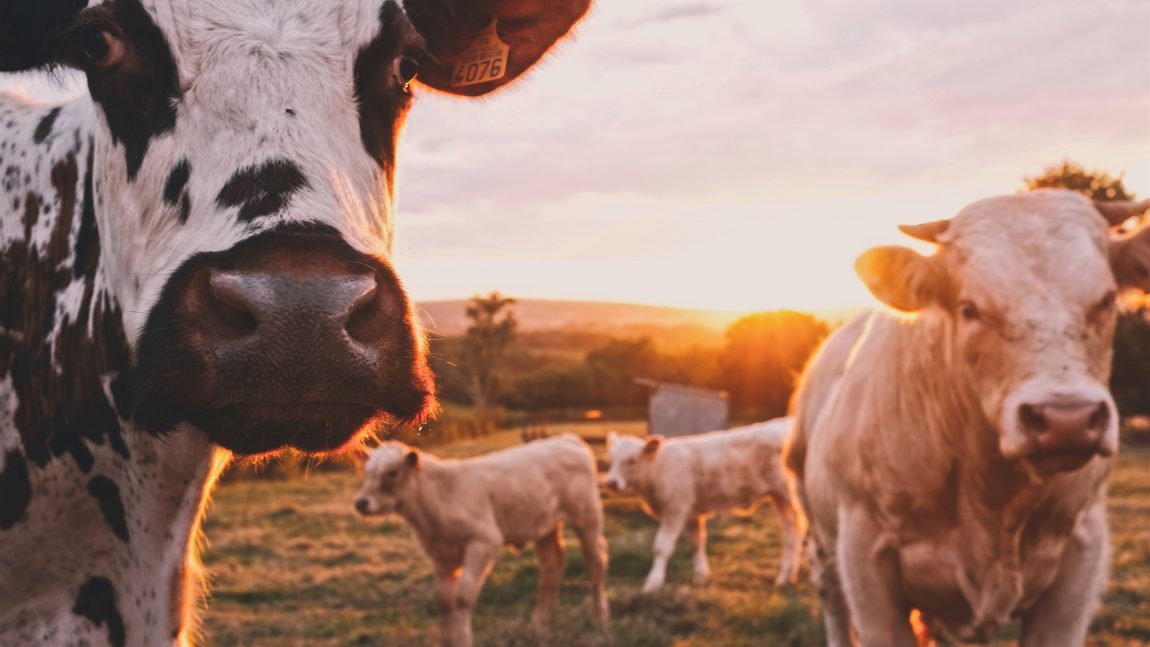In the UK today, over 1 in 10 wildlife species are facing extinction, the primary cause of which has been identified as the intensive farming industry through the widespread monocropping of land and significant usage of pesticides. The obvious alternative to this is organic farming. Organic farming is an agricultural practice that refrains from the use of any chemicals – fertilisers, pesticides, growth hormones, and antibiotics are all forbidden. As a result, organic farms have up to 50% more insect and bird life that non-organic farms. They are also accompanied by a whole host of other environmental benefits from reducing water and soil pollution to producing nourishing soils as part of a sustainable nutrient cycle.
The consumers of organic produce also benefit with no hormones or other chemicals being ingested which can have negative side-effects. With these benefits becoming more publicly realised, it’s no wonder we have seen a rise in organic farming stemming from an increased demand by consumers (the US saw a 56% rise in certified organic farms between 2011 and 2016). Similarly, other consumption trends have seen progressively larger uptakes with Veganuary recording over a record 400,000 participants as consumers take action into their own hands.
There are difficulties in swapping to organic farms, as for land to be certified organic is must not have prohibited substances applied to it for 3 years. During this period, farmers can struggle with reduced yields and profit due, but the government does offer financial help for this and are seemingly pushing it with such initiatives. Unfortunately, organic farming has got some negative press recently. A report by Cranfield University in November 2019 highlighted that although a shift to 100% organic farming in the UK would reduce emissions per hectare, yields would be reduced leading to a net increase in emissions as a result of importing food and we are therefore fed the notion that this would be unsustainable. This seems like a reasonable assumption to make if we look at the study in a pigeon-holed manner, but the reality is that we live in a world where 1/3 of all the food we produce is wasted and where more people are obese than malnourished.
There are so many social and cultural factors at play, yet we continue to ask over-simplified questions to try and solve our big problems. The reality is that we cannot stick to practices that continue to impact our dwindling insect populations and buying local and organic where possible must be one of the best ways we can all help.
The same rings true for business, particularly the hospitality industry. Clearly, attending to the shifting needs of customer who want to eat organic food is a necessary supply and demand situation for food service establishments. Yet, as the forefront of culinary intrigue and experimentation, restaurants and hotels cannot underestimate their power to influence consumers through the food they serve.
Advertising the benefits and the environmental responsibility inherent in the organic supply chain can only help to reinforce this idea, and it seems that increasingly, the hospitality industry is taking this on board. Indeed, between 2017 and 2018, the consumption of organic produce in food service increased 10.2% compared to an increase of 4.2% in supermarkets highlighting these efforts.
Here at Considerate Group, we look to do our part as well, encouraging food service establishments to make the switch to organic produce where possible. This helps improve environmental impact and fosters long-term sustainable relationships with suppliers and farmers. The hope is that the number of establishments adopting organic produce continues to rise in the near future but for now we are doing what we can to help the situation. With what has occurred over the last few weeks, it is important to support the local farmers and suppliers.
Coronavirus Update:
One of the silver linings emerging from the Covid-19 pandemic is the creation of new partnerships and alliances between the agriculture and hospitality sectors. As travel bans sweep across Europe and the rest of the world, UK farmers are facing a drought in the usual influx of seasonal migrant field workers. Couple this with the fact that demand for essential supplies has soared amidst household isolations and fears of lockdown, means UK farmers are crying out for any extra help they can get their hands on.
Off the back of this, moves have been made to tap into the source of workers recently laid-off from the hospitality industry and new collaborations are starting to come to light. The National Farmers Union, Scotland, in partnership with British Summer Fruits has already got plans underway to connect with hospitality businesses to advertise work directly to those who have been recently been made redundant as a result of Covid-19. Indeed, two regions in Scotland, Tayside and Fife, are reported to have had their phones ‘ringing off the hook’ as a result of these job advertising initiatives. Partnerships like these can only go to strengthen working relationships in the future and help the hospitality industry create robust and sustainable foundations for the future.



